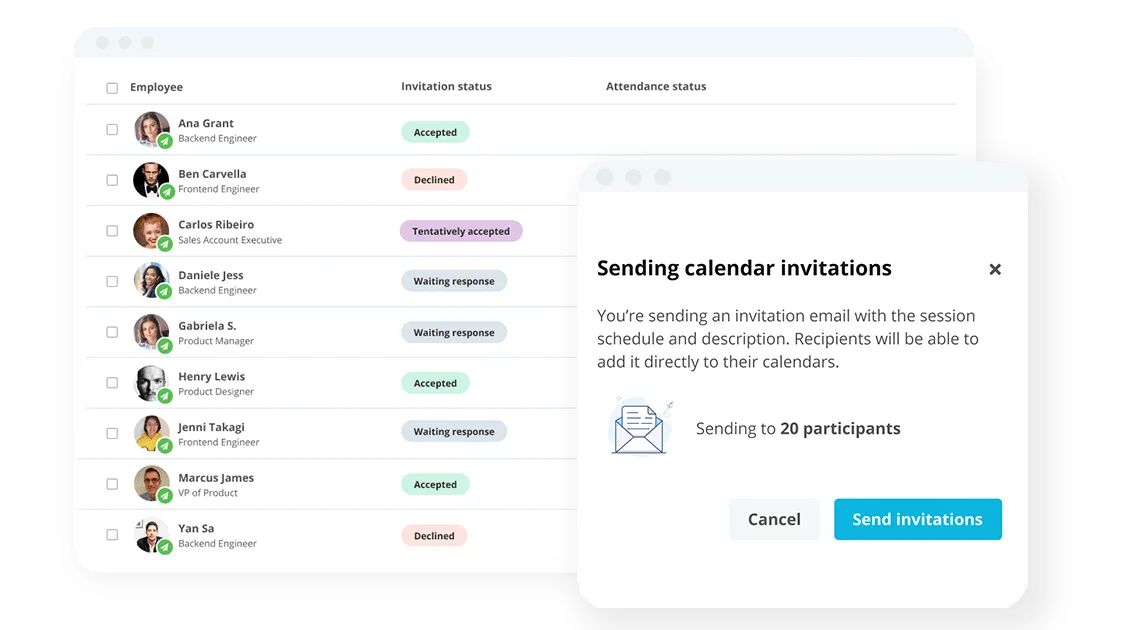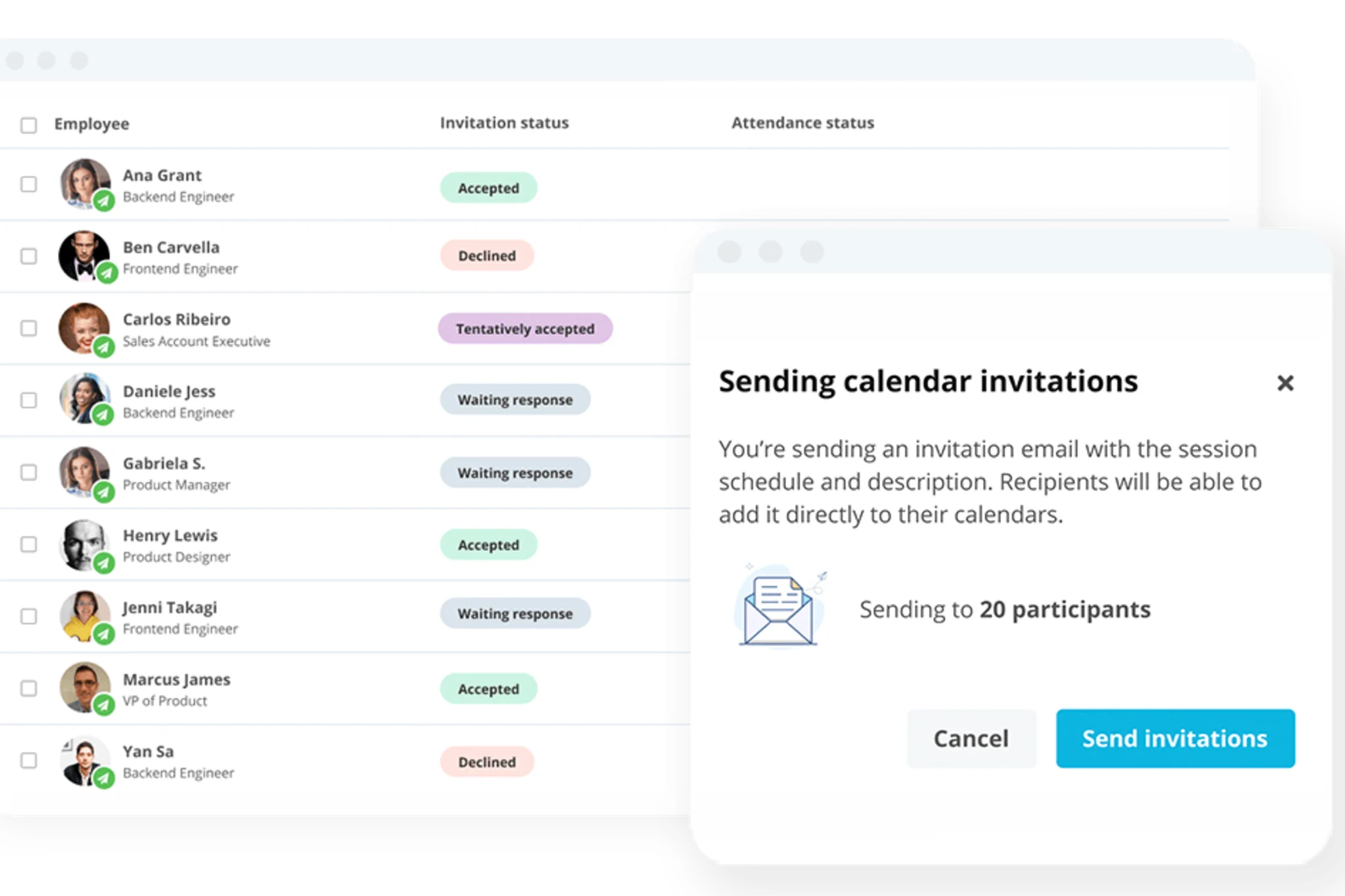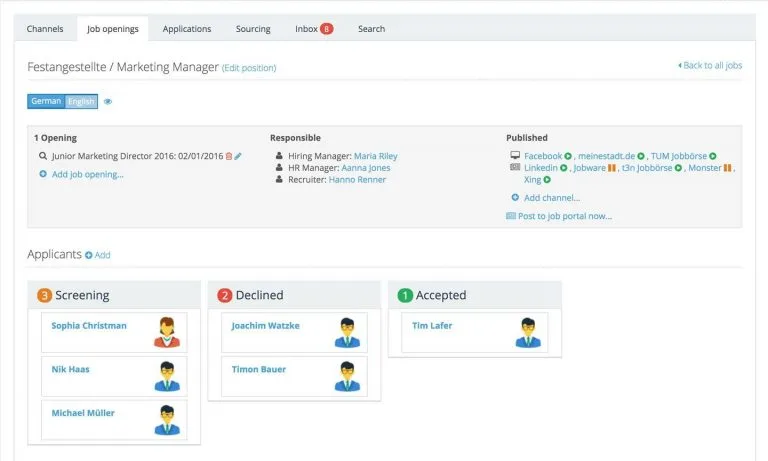
Give the Right Training at the Right Time
Simplify your staff development with centralised training management.
Future-proof Teams With PersonioSoft Skills vs Hard Skills: Definitions, Differences and Examples

Soft skills versus hard skills, why do they matter and what’s the difference? In this article, we will provide a comprehensive overview of soft skills and hard skills through definitions and examples.
Key Facts
Soft skills are traits that often develop without training and can potentially help employees perform better within their roles.
Hard skills consist of the knowledge employees require to perform the core functions of their roles.
A blend of hard and soft skills is best for a high-performing business.
Contents
The Key Differences Between Soft Skills and Hard Skills
Hard skills are technical competencies employees learn through school or on-the-job training specifically for their current position in the workplace. For example, working as an accountant requires an employee to be able to analyse financial data, draft accurate reports, manage payroll and so on.
Soft skills are positive traits that tend to develop indirectly over time and may or may not be helpful in the employee’s position. They can be difficult to objectively measure or quantify. Since they don’t correspond to any particular position, they can prove beneficial to several at once. So, for example, someone with good communication skills can excel in group settings.
Soft Skills Examples
Some examples of soft skills include:
Creativity
Teamwork
Persuasiveness
Time management
Organisation
Communication
Patience
Multitasking
Problem solving
Empathy
Perception
Hard Skills Examples
Examples of hard skills include:
Bookkeeping
Learning a different language
Sales techniques
Software programme operation
A degree or certification
Analysing financial reports
Coding
Proficiency with heavy machinery
Why Are Hard Skills and Soft Skills Important?
Hard skills are necessary for the workplace because they enable your business to provide a product or service. Employees without these proficiencies can’t be expected to perform well in your field. For example, a salesperson who can’t sell or a chef who can’t cook can bring operations to a halt.
Soft skills are essential in the workplace because they influence how well employees get along with their peers. Additionally, they allow employees to conceive unconventional solutions to problems associated with their roles that training may not have prepared them for. Solving tough problems with soft skills like teamwork and creativity can be quite beneficial.
Should You Focus on Soft Skills or Hard Skills?
Employees should have a mix of soft skills and hard skills in a typical work environment. Focusing solely on one or the other hampers your organisation’s effectiveness in creating quality products.
A workforce that solely focuses on hard skills would only be able to perform their jobs on a technical level. As a result, work would get done slowly due to a lack of creative problem-solving, teams wouldn’t be as effective and relationship-building in the workplace can be stunted.
With only soft skills, employees would be a mixed bag of traits that are only potentially related to their responsibilities. You have little control over which worker is good at communication, collaborating, problem-solving or any other soft skills that could develop over time. Additionally, your workers may not have the basic skills to perform their jobs correctly.
Frequently Asked Questions About Soft vs Hard Skills
What Is the Difference Between Soft and Hard Skills?
Hard skills are the learned technical proficiencies employees need to perform their jobs. They form the backbone of a company, ensuring it can consistently produce goods and services.
Soft skills are an employee's characteristics that emerge naturally due to past experiences. Not every soft skill is relevant to every position, but when they align with an employee’s regular responsibilities, it helps produce higher quality results.
What Are Some Examples of Soft Skills?
Examples of soft skills include patience, multitasking and creativity.
What Are Some Examples of Hard Skills?
Examples of hard skills include learning to code, a degree or software proficiency.
Improving Soft and Hard Skills in the Workplace
The blend of soft and hard skills helps an organisation and its workforce thrive. Personio HR can help employees learn new hard skills or improve their soft ones with its high-quality training tool. You can implement training programmes and see how your employees are improving at a glance. Book your free demo to learn how Personio can help you manage your business.
Disclaimer
We would like to inform you that the contents of our website (including any legal contributions) are for non-binding informational purposes only and does not in any way constitute legal advice. The content of this information cannot and is not intended to replace individual and binding legal advice from e.g. a lawyer that addresses your specific situation. In this respect, all information provided is without guarantee of correctness, completeness and up-to-dateness.

